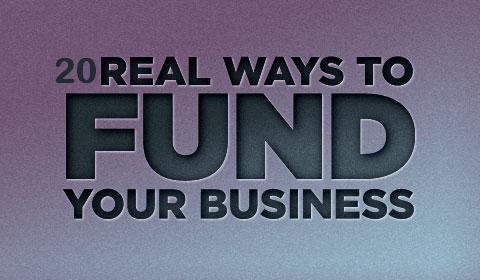
Without a doubt, the best way to fund small businesses is through your own private investment or non-repayable grant funding. Putting your own money into the business means you don’t need to answer to anyone and you are free to make decisions good or bad. Non-repayable grant funding is obviously cheaper and carries less risk than investing your savings so if you have the time to enter into a lengthy grant application process, you could benefit from much lower costs and a risk free venture.
Funding a Retail Business after the Start Up
Many grants exist for business concepts and businesses that are new and have no record of success or failure, but they are often restricted to certain industries. The UK grant system seems to have a phobia for retail businesses, which is not good news for anyone who wants to breathe life back into our high streets. For some reason, retail outlets are seen as high-risk ventures and bad use of grant money. This often means retailers need to get their business off the ground with minimum assistance and you can practically forget about borrowing from a bank unless you can afford the repayments without depending on your business for revenue.
Social Lending Hits an All Time High
Social lending has been around for a long time with Credit Unions being the best-known sources for funds for local businesses trying to get off the ground. Credit Unions are very similar to banks on the surface, but they have some fundamental differences. Credit unions are run on a not for profit basis because the money borrowed from the union originates from the deposits of people who are savers. You need to have been a member with a record of saving In order to borrow from a credit union and this is not ideal if you need a loan in the name of your business.
Social Investors Want to Help
Crowd funders have been helping businesses grow for a many years now, but the difficulties facing businesses trying to obtain low cost bank loans has encourage more and more businesses owners to look to peers for their investment needs. Websites like CrowdCube and kickstarter are funding everything from market stalls through to movies and there is a great deal of buzz around crowd funding. But the most successful businesses born out of the idea are those with mentoring built into the deal. Sites like Crowdit are realising the need for people with great ideas or products to have more than just money if they are going to make it as a business.
Peer to Peer Lending
P2P lending is really beginning to take off and it’s similar to crowd funding because it’s people like you and I who are lending the money to businesses. Business owners and finance managers review offers from many different lenders and they can choose which is cheapest or offers the best repayment terms to help push their businesses to where they need to be.
Alternative Lending Sources
Retailers are able to borrow from certain lenders when they are growing. Some banks offer cash advances based on the amount of revenue the business generates with card sales each month. One source for such loans is Business Loans Direct.
The advantage of having a business cash advance instead of a loan is that loans have fixed repayments each month, whereas a business cash advance only requires a fixed percentage of card sales. That means good months bring the outstanding balance down faster and there is no pressure to find enough revenue to make payments when the business has lower than expected sales figures.
